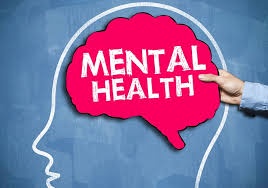First of all,
In the age of digital connectivity, social media platforms have become integral parts of our daily lives. From keeping us informed about world events to connecting us with friends and family, social media offers numerous benefits. However, along with its advantages, social media also brings challenges, particularly concerning mental health. This article explores the multifaceted impact of social media on mental well-being and offers strategies for navigating the digital landscape in a healthier manner.
The Positive Influence of Social Media:
Social media platforms serve as powerful tools for communication, enabling individuals to connect with others regardless of geographical barriers. They facilitate the exchange of ideas, provide support networks, and foster a sense of community. For many people, social media serves as a platform for self-expression and creativity, allowing them to showcase their talents and passions. Moreover, social media can be a valuable source of information, offering access to educational resources, news updates, and opportunities for personal and professional growth.
The Dark Side of Social Media:
Despite its benefits, social media has been associated with various negative impacts on mental health. One of the most concerning issues is the rise of social comparison, where individuals compare their lives to the curated content of others, often leading to feelings of inadequacy, envy, and low self-esteem. Additionally, the constant exposure to idealized images and lifestyles on social media can contribute to body image issues and eating disorders, particularly among young people. Moreover, the addictive nature of social media, characterized by endless scrolling and seeking validation through likes and comments, can exacerbate feelings of anxiety and depression.
The Impact on Psychological Well-being:
Research suggests a complex relationship between social media use and mental health outcomes. While some studies indicate a correlation between excessive social media use and symptoms of depression, anxiety, and loneliness, others highlight the potential benefits of social support and online communities in improving psychological well-being. Furthermore, certain factors such as the quality of online interactions, individual susceptibility, and usage patterns influence the impact of social media on mental health. It is essential to recognize that social media itself is not inherently detrimental but rather how it is utilized and the individual's relationship with it that determines its effects on mental well-being.
Navigating the Digital Landscape:
Given the pervasive influence of social media on our lives, it is crucial to adopt strategies for maintaining mental health in the digital age. Here are some tips for navigating the digital landscape more mindfully:
Set Boundaries:
Establish limits on your social media usage and designate specific times for checking your accounts. Avoid using social media before bedtime to promote better sleep quality and reduce screen time-related disruptions.
Curate Your Feed:
Take control of your social media experience by curating your feed to include content that inspires, educates, and uplifts you. Unfollow accounts that promote unrealistic standards or trigger negative emotions.
Practice Digital Detox:
Regularly disconnect from social media and engage in offline activities that bring you joy and fulfillment. Spend time outdoors, pursue hobbies, or connect with friends and family in person to cultivate meaningful relationships.
Be Mindful of Comparison:
Remember that social media often portrays a distorted reality, and comparing yourself to others' highlight reels is not productive. Focus on your own journey, accomplishments, and personal growth rather than seeking validation from external sources.
Cultivate Authentic Connections:
Prioritize genuine interactions and meaningful connections on social media. Engage in conversations, share your experiences authentically, and offer support to others in your online community.
Seek Professional Help:
If you're struggling with mental health issues exacerbated by social media, don't hesitate to seek support from a qualified mental health professional. Therapy can provide you with coping strategies, tools for managing stress, and support in navigating the challenges of the digital world.
In summary:
The impact of social media on mental health is a complex and nuanced issue, influenced by various factors including individual differences, usage patterns, and the quality of online interactions. While social media offers numerous benefits, it also poses challenges to mental well-being, such as social comparison, addiction, and negative self-perceptions. By adopting mindful strategies and cultivating a healthy relationship with social media, individuals can navigate the digital landscape in a way that promotes psychological well-being and enhances their overall quality of life. Ultimately, it's essential to prioritize self-care, seek support when needed, and strive for balance in our increasingly connected world.


No comments yet